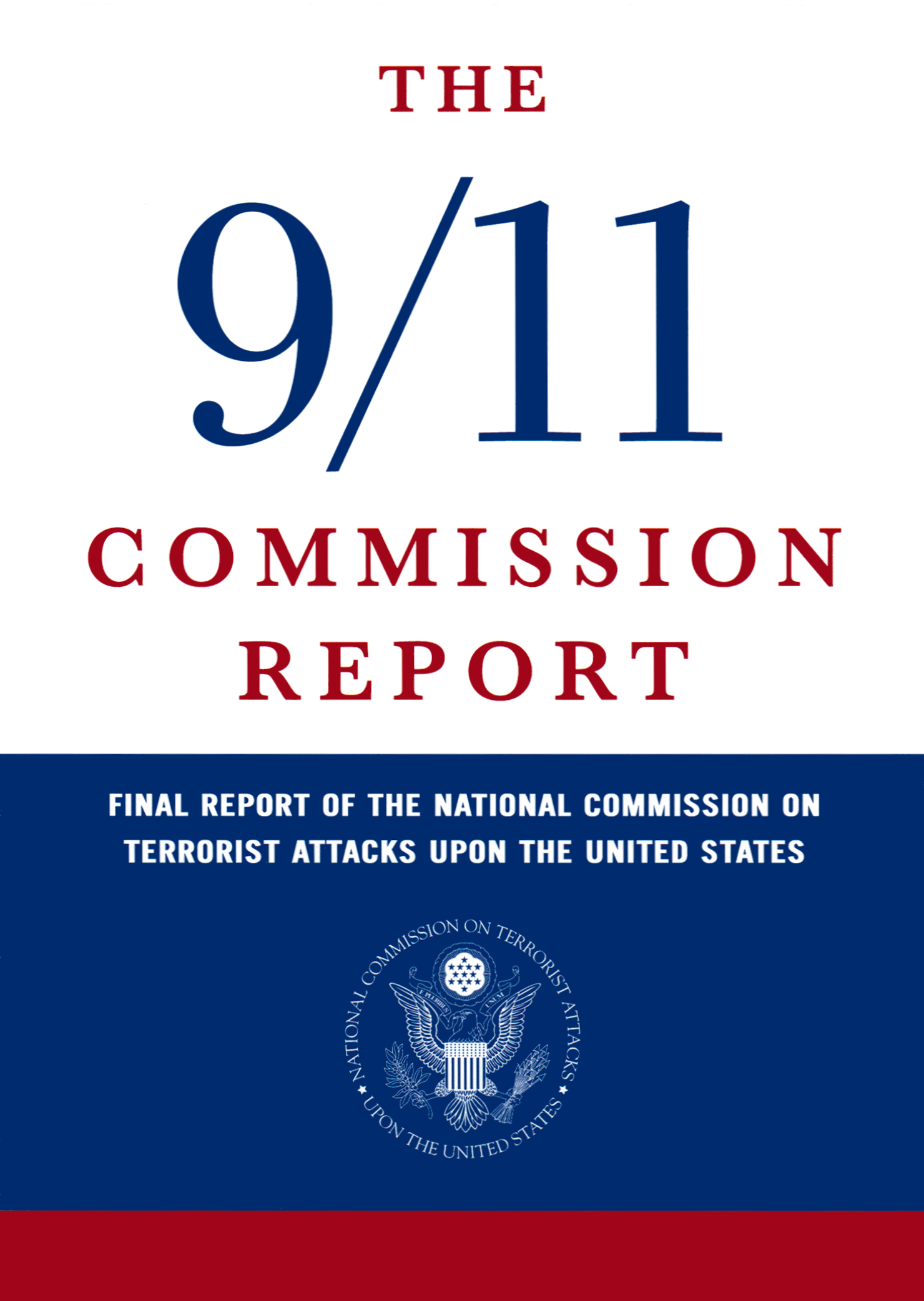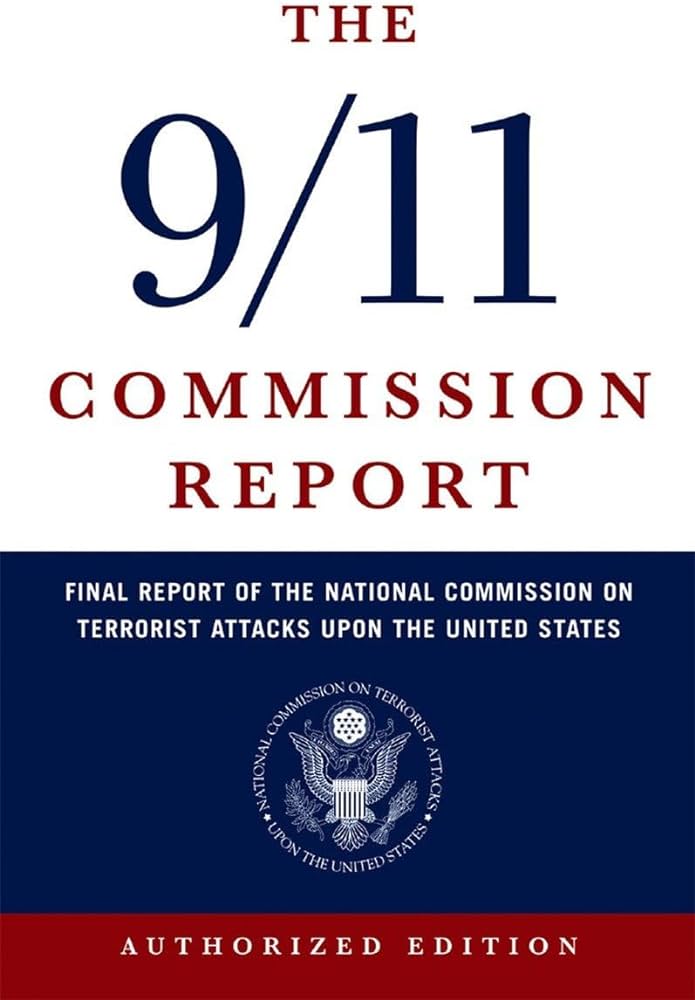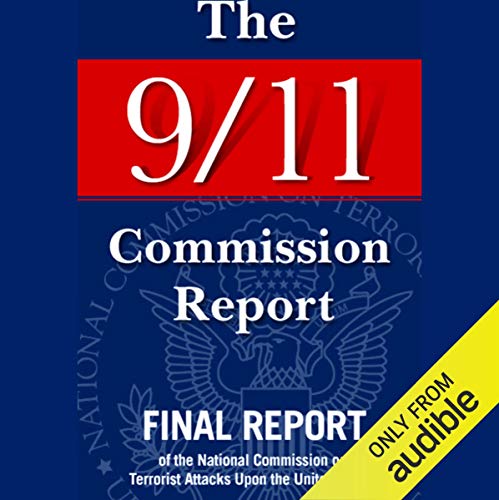The 9/11 Commission Report Audiobook provides a comprehensive account of the events leading up to and following the September 11 attacks. It aims to offer insights and recommendations to prevent future terrorist acts.
The 9/11 Commission Report Audiobook is a vital resource for understanding the tragic events of September 11, 2001. The report delves into the intricacies of the attacks, examining the failures and successes of various agencies involved. Listeners gain a detailed narrative of the events, key figures, and the overall impact on national security.
The audiobook format makes it accessible for those who prefer listening over reading. It serves not only as a historical document but also as a guide to improving security measures and preventing future tragedies.
Origins Of The 9/11 Commission
The 9/11 Commission was created to investigate the events of September 11, 2001. The goal was to provide a detailed report of the attack and to prevent future ones. The Commission’s findings were published in a comprehensive report. This report is known as the 9/11 Commission Report. An audiobook version is also available for easier consumption.
Legislative Genesis
The idea for the 9/11 Commission came from the U.S. Congress. Lawmakers wanted a thorough investigation into the attacks. They believed a special commission was needed to gather all the facts.
The Commission was established by a law called the Intelligence Authorization Act. This Act was passed in late 2002. The Act specified the duties and powers of the Commission. It also provided the necessary funding for its work.
Commission Members And Structure
The 9/11 Commission was composed of ten members. These members were chosen by Congress and the President. The Commission included both Democrats and Republicans. This ensured a balanced and fair investigation.
The members were experts in various fields. They included former government officials, intelligence experts, and legal scholars.
| Member Name | Role | Party Affiliation |
|---|---|---|
| Thomas H. Kean | Chairman | Republican |
| Lee H. Hamilton | Vice Chairman | Democrat |
| Richard Ben-Veniste | Commissioner | Democrat |
| Fred F. Fielding | Commissioner | Republican |
| Jamie S. Gorelick | Commissioner | Democrat |
| Slade Gorton | Commissioner | Republican |
| John F. Lehman | Commissioner | Republican |
| Timothy J. Roemer | Commissioner | Democrat |
| James R. Thompson | Commissioner | Republican |
| Bob Kerrey | Commissioner | Democrat |
The Commission had a clear structure. It included a chairman, a vice-chairman, and eight other members. The chairman and vice-chairman led the Commission’s work. The other members brought diverse expertise to the investigation.
This structure helped the Commission function effectively. It allowed for thorough research and analysis. The members worked together to produce a detailed and accurate report.
Mandate And Objectives
The National Commission on Terrorist Attacks, also known as the 9/11 Commission, had a crucial mission. This mission was to understand the events of September 11, 2001. The Commission’s mandate and objectives were clear and vital.
Scope Of Investigation
The Commission had a broad scope of investigation. They examined all facets of the 9/11 attacks. This included looking into the planning, execution, and aftermath of the attacks.
- Investigate the terrorists’ plans and actions.
- Analyze the response from the government.
- Study the failures in intelligence and security.
Goals For Accountability
The Commission aimed to ensure accountability at all levels. They sought to identify mistakes and learn from them. This would help to prevent future attacks.
- Hold individuals and agencies accountable.
- Recommend changes to improve security.
- Ensure transparency and public awareness.
| Mandate | Objectives |
|---|---|
| Investigate 9/11 attacks | Identify security failures |
| Analyze government response | Recommend improvements |
| Ensure accountability | Prevent future attacks |
Methodology Of The Investigation
The 9/11 Commission Report is a thorough examination of the events leading to the September 11 attacks. The methodology of the investigation ensures a comprehensive and accurate account. The report highlights various techniques and strategies used to gather crucial information.
Information Gathering Techniques
The commission used several information gathering techniques to collect data. One key method was reviewing government documents. This included memos, reports, and emails. The team also analyzed security footage and phone records.
Another important technique was consulting expert analyses. These experts provided insights into terrorism and intelligence operations. They helped the commission understand complex issues.
The commission also utilized public sources. These included news articles, books, and academic papers. Public sources offered additional perspectives on the events of 9/11.
Witness Interviews And Hearings
The commission conducted witness interviews to gather firsthand accounts. They interviewed government officials, intelligence officers, and military personnel. These interviews provided vital information about the events and decisions leading to the attacks.
In addition, the commission held public hearings. These hearings allowed victims’ families and the general public to share their experiences. The hearings were a platform for transparency and accountability.
The commission also engaged with foreign officials. They interviewed representatives from allied nations. These interviews helped understand international aspects of the investigation.
The meticulous methodology of the investigation ensured a detailed and accurate report. The 9/11 Commission Report Audiobook captures these efforts, making it a vital resource for understanding the events of September 11.
Chronology Of Events
The 9/11 Commission Report Audiobook provides a detailed chronology of events on that fateful day. This section focuses on the precise timeline and critical moments of the 9/11 attacks. Understanding the sequence helps grasp the magnitude of the tragedy.
Timeline Of The Attacks
The 9/11 attacks unfolded over a brief but devastating period. Here’s a detailed timeline:
| Time (ET) | Event |
|---|---|
| 8:46 AM | American Airlines Flight 11 crashes into the North Tower. |
| 9:03 AM | United Airlines Flight 175 crashes into the South Tower. |
| 9:37 AM | American Airlines Flight 77 crashes into the Pentagon. |
| 9:59 AM | South Tower collapses. |
| 10:03 AM |
Findings On Terrorist Operations
The 9/11 Commission Report Audiobook details the responses to the attacks on September 11, 2001. It highlights the immediate actions taken by emergency services and national defense. This section focuses on these crucial responses, showcasing their importance and impact.
Emergency Services Reaction
On 9/11, emergency services responded quickly. They faced immense challenges. Firefighters, police, and medical teams rushed to the scene. Their bravery and dedication saved many lives.
Firefighters were among the first responders. They entered the burning towers to rescue trapped individuals. Police officers managed the chaos outside. They directed people to safety and secured the area.
Medical teams set up triage units. They treated the injured on-site and transported others to hospitals. The coordination among these teams was vital. Their efforts were heroic and selfless.
National Defense Mobilization
The national defense system also reacted swiftly. They implemented protective measures immediately. Fighter jets were scrambled to patrol the skies.
The North American Aerospace Defense Command (NORAD) played a crucial role. They monitored all air traffic closely. They ensured no further threats materialized.
The Federal Aviation Administration (FAA) grounded all flights. This was an unprecedented move. It helped prevent additional hijackings.
Military bases were put on high alert. Troops were mobilized to protect key locations. The response showcased the nation’s readiness to defend itself.
These responses highlight the dedication and bravery of emergency services and national defense teams. Their quick actions were crucial in managing the situation and saving lives.

Responses To The Attacks
The 9/11 Commission Report Audiobook provides crucial insights into preventing future terrorist attacks. The report’s recommendations aim to strengthen national security and ensure public safety. In this section, we will explore key recommendations for improving intelligence and enhancing national preparedness.
Improving Intelligence Capabilities
To effectively counter terrorism, robust intelligence capabilities are essential. The 9/11 Commission Report highlights several steps to enhance intelligence operations:
- Unified Intelligence Community: Create a unified intelligence community under the direction of a National Intelligence Director.
- Information Sharing: Encourage better information sharing across federal, state, and local agencies.
- Technology Upgrades: Invest in advanced technology to improve data collection and analysis.
- Training Programs: Develop training programs to keep intelligence personnel updated on the latest tactics and technologies.
Enhancing National Preparedness
Enhanced national preparedness is crucial for responding to potential threats. The 9/11 Commission Report outlines several strategies:
- Emergency Response Plans: Establish comprehensive emergency response plans for all levels of government.
- Public Awareness Campaigns: Launch campaigns to educate the public about emergency procedures and safety measures.
- Resource Allocation: Allocate resources efficiently to ensure readiness in case of emergencies.
- Collaboration and Coordination: Foster collaboration between public and private sectors for a unified response to threats.
By following these recommendations, the nation can better prepare for and respond to future terrorist attacks.
Recommendations For The Future
The National Commission on Terrorist Attacks, also known as the 9/11 Commission, produced a comprehensive report detailing the events of September 11, 2001. This report, now available as an audiobook, has had a profound impact. Its legacy continues to shape national security policies and public understanding of terrorism.
Policy Changes Enacted
Following the release of the 9/11 Commission Report, significant policy changes were made. These changes aimed to improve national security and prevent future attacks.
- Creation of the Department of Homeland Security: This new department was established to unify national security efforts.
- Implementation of the USA PATRIOT Act: This act expanded surveillance and investigative powers.
- Formation of the Director of National Intelligence: This position was created to oversee and coordinate intelligence activities.
These changes reflect the urgent need for improved security measures. They also highlight the importance of inter-agency cooperation.
Ongoing Implications For National Security
The 9/11 Commission Report has ongoing implications for national security. Its recommendations continue to guide policy decisions and security practices.
- Enhanced Airport Security: Stricter screening procedures were introduced to prevent hijackings.
- Improved Intelligence Sharing: Agencies now share information more effectively.
- Focus on Cybersecurity: There is increased attention on protecting digital infrastructure.
These measures show the lasting impact of the report. They underscore the need for vigilance and adaptability in national security.
Overall, the 9/11 Commission Report audiobook remains a critical resource. It offers valuable insights into policy changes and ongoing security needs.

Impact And Legacy
The National Commission on Terrorist Attacks, also known as the 9/11 Commission, released a report that has sparked many controversies and criticisms. The 9/11 Commission Report Audiobook also faced similar scrutiny. Below are the key areas of debate and skepticism.
Debate Over Commission’s Thoroughness
Many experts questioned the thoroughness of the commission’s investigation. Critics argue that the report lacked depth in examining key events. They believe not all evidence was thoroughly reviewed.
Some families of the victims felt the commission didn’t address their concerns. There were also claims that important witnesses were not interviewed. This has led to a feeling of dissatisfaction among the public.
| Area of Concern | Criticism |
|---|---|
| Witness Interviews | Many key witnesses were not interviewed. |
| Evidence Review | Important evidence was allegedly overlooked. |
| Family Concerns | Victims’ families felt their concerns were ignored. |
Conspiracy Theories And Public Skepticism
The report gave rise to many conspiracy theories. Some people believe the government was involved in the attacks. Others think the true story is hidden from the public.
These theories have increased public skepticism about the report. Many believe the commission was influenced by political agendas. This has led to a lack of trust in the official findings.
- Government involvement theories
- Hidden truths about the attacks
- Political influence on the commission
Such theories have found a wide audience, contributing to ongoing debates. The audiobook has brought these issues to a new audience. This has kept the controversies alive for years.
Controversies And Criticisms
The 9/11 Commission Report is an important document detailing the events of September 11, 2001. The audiobook format brings this crucial report to a wider audience. It offers unique advantages for those interested in understanding the historical significance of 9/11.
Narration And Production Values
The narration of the audiobook is clear and engaging. Skilled voice actors bring the report to life. The production values are high, ensuring a seamless listening experience. Background sounds and appropriate pauses enhance the overall quality. Listeners can easily follow complex information thanks to the professional narration.
Accessibility And Public Engagement
The audiobook format increases the accessibility of the 9/11 Commission Report. People with visual impairments can now access this crucial information. Busy individuals can listen during commutes or while multitasking. The audiobook format makes the report more approachable for a diverse audience.
- Available on various platforms
- Easy to download and listen
- Reaches a broader audience
The 9/11 Commission Report audiobook fosters public engagement. It helps people understand the events and their implications. An engaged public is better informed and more aware of historical events.

Conclusion
The 9/11 Commission Report Audiobook provides crucial insights into one of history’s darkest days. This audiobook sheds light on the events, decisions, and lessons of 9/11. It is a must-listen for those seeking to understand the impact and aftermath of the attacks.
Enhance your knowledge by exploring this essential resource.



